The Chevrolet Silverado ZR2 and the Mystery of '4WD Off'

With the arrival of the 2022 Chevrolet Silverado ZR2 earlier this year, our selection of gasoline-powered mega-pickups grew to three. While the Chevy gets magical Multimatic DSSV spool dampers and a 6.2-liter V-8, it offers neither the decadent horsepower nor the outrageous pre-runner bodywork of the Ford F-150 Raptor and the Ram 1500 TRX. But the ZR2's narrowness can be seen as an advantage when your off-road environs are more suited to rock bouncers than Best in the Desert events.
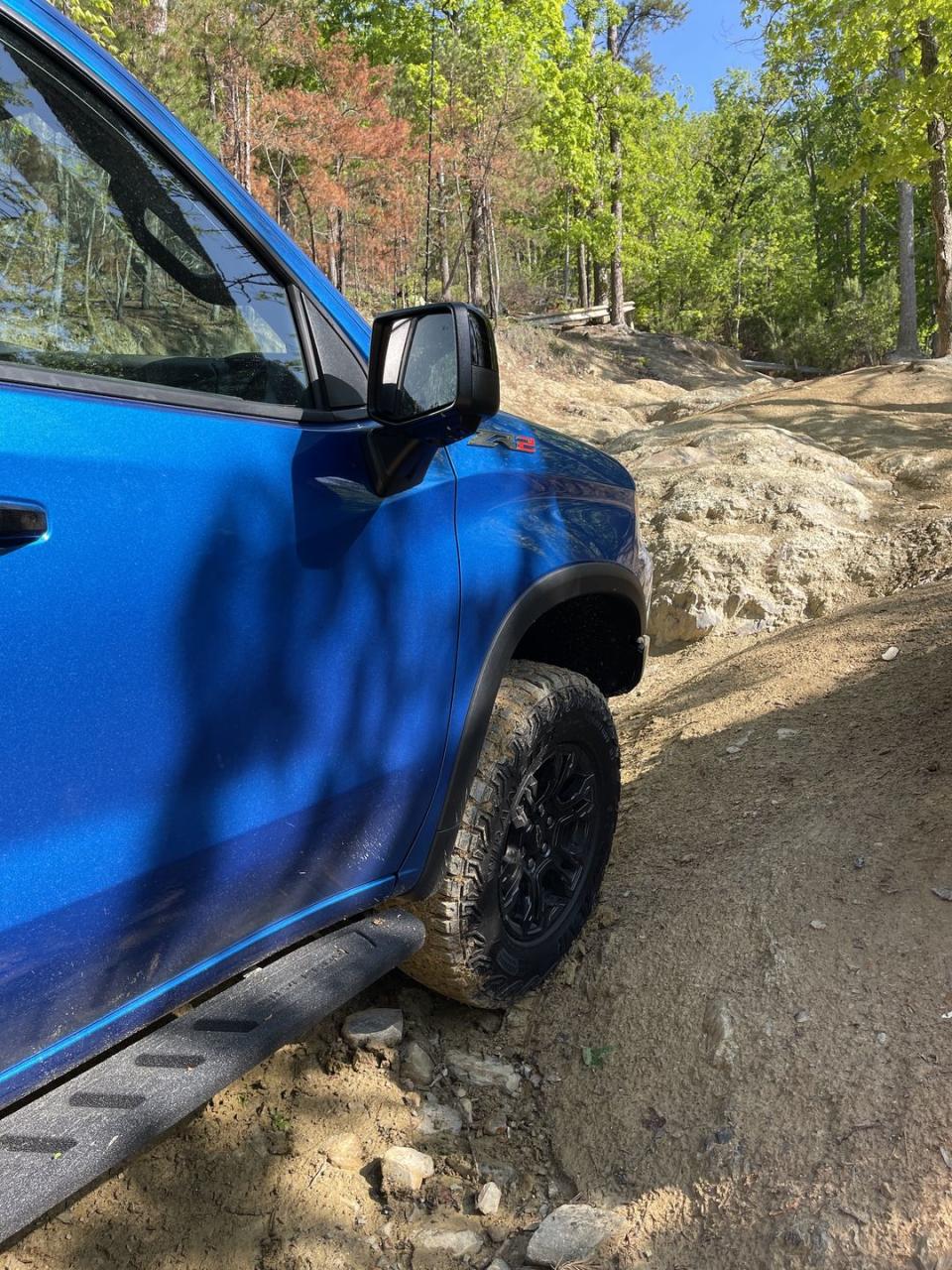
Being 5.4 inches narrower than the Raptor and 6.8 inches narrower than the TRX, the ZR2 is scaled for the realities of East Coast trails, where speeds are low and trees are plentiful. A little too plentiful, I might say, after my visit to Uwharrie National Forest, where I accidentally discovered a transfer case mode called "4WD Off" that's been much discussed in GM truck forums. The bad news is that my encounter with 4WD Off led to some light body damage. The good news: if you own a GM truck with a full-time transfer case—an AWD mode—I can now tell you what not to do, and why.
The trails at Uwharrie tend to be tight and steep. I once had to bail early on a drive there in a Toyota Tundra long-bed because it didn't have the breakover angle to crest the tall, steep drainage berms that crisscross the trails. It's definitely not a place you'd want to take a TRX. Even the ZR2, I thought, might be pushing it. You know you're dealing with some tricky terrain when the trails have guardrails.
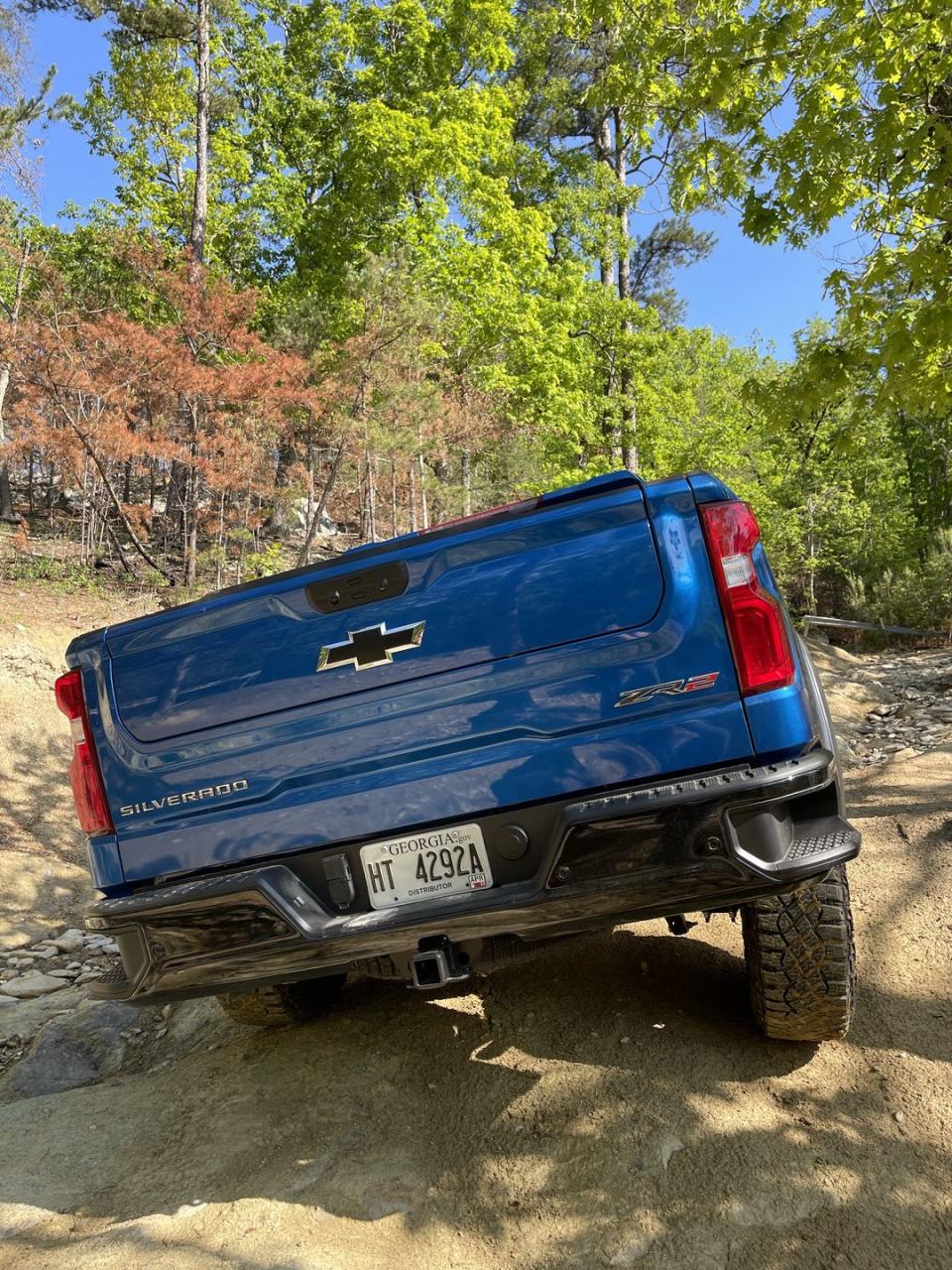
One problem with Uwharrie is that no matter how many times I go there, as soon as I turn onto the access road I immediately get lost. So, when I aimed the ZR2 toward a trail named Daniel, I ended up on the wrong side of it. Daniel goes up and over a mini-mountain, and from one side it's a challenging but relatively easy climb. The other side . . . is where I ended up. Search "Uwharrie Roll Over" on YouTube and a lot of the results will be right there where I arrived with the ZR2. You can even find a Chevy. Short-wheelbase Jeeps have it particularly tough. It's called The Ledge, and if your truck can't make it up and over, it really has no business getting into the stuff higher up. The only time I've gone up over The Ledge was in an American Expedition Vehicles Jeep Wrangler Unlimited Rubicon with a lift and 35-inch tires.
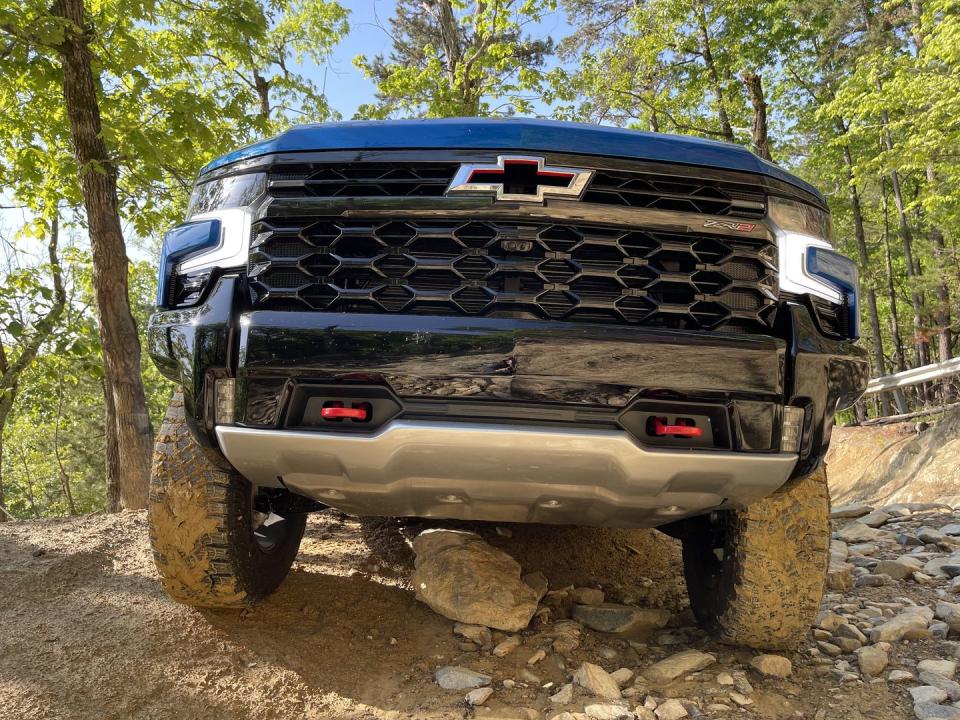
The ZR2 has 33-inch tires, tame by current standards. But, by virtue of its slimmer front bumper, it has excellent approach angles. In fact, its approach and breakover angles are better than those of both the TRX and the Raptor on its standard tires. The ZR2 is also armored-up with skid plates, and it gets locking differentials front and rear. But not in the middle, as I'll tell you all about.
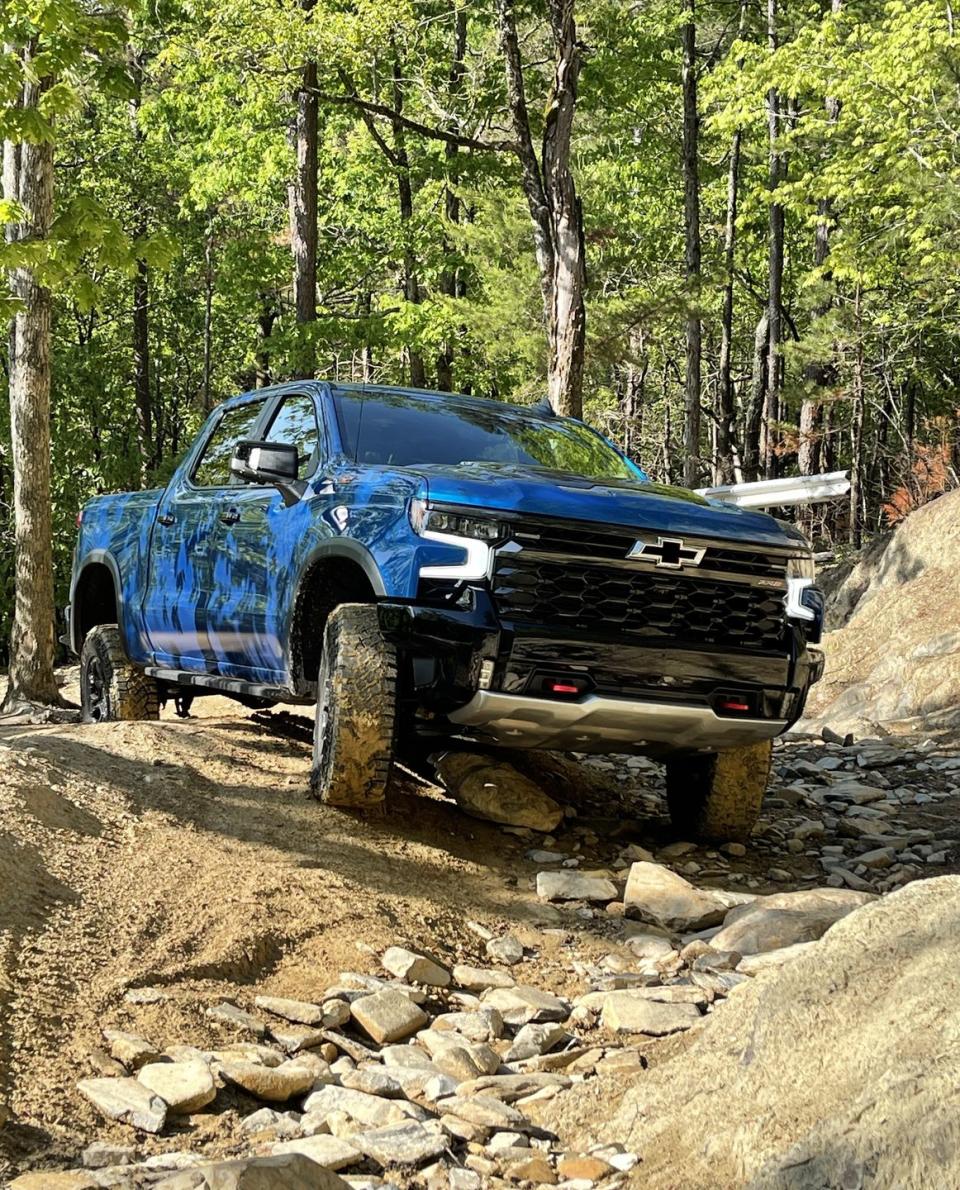
The ZR2 is basically the perfect size for The Ledge. Its wheelbase is long enough to lend front-to-rear stability when the nose climbs to the sky (a major problem here for the two-door Wranglers), and it's wide enough to straddle the rut that runs along the right side of the approach. With the lockers and serious suspension articulation at the rear axle, the ZR2 idled up and over without much drama, even when at least one tire was usually airborne. While the ZR2 has a one-pedal drive mode for trails, I figured that in this circumstance I'd go with the two-foot method, overlapping brake and throttle to keep the driveline wound up.
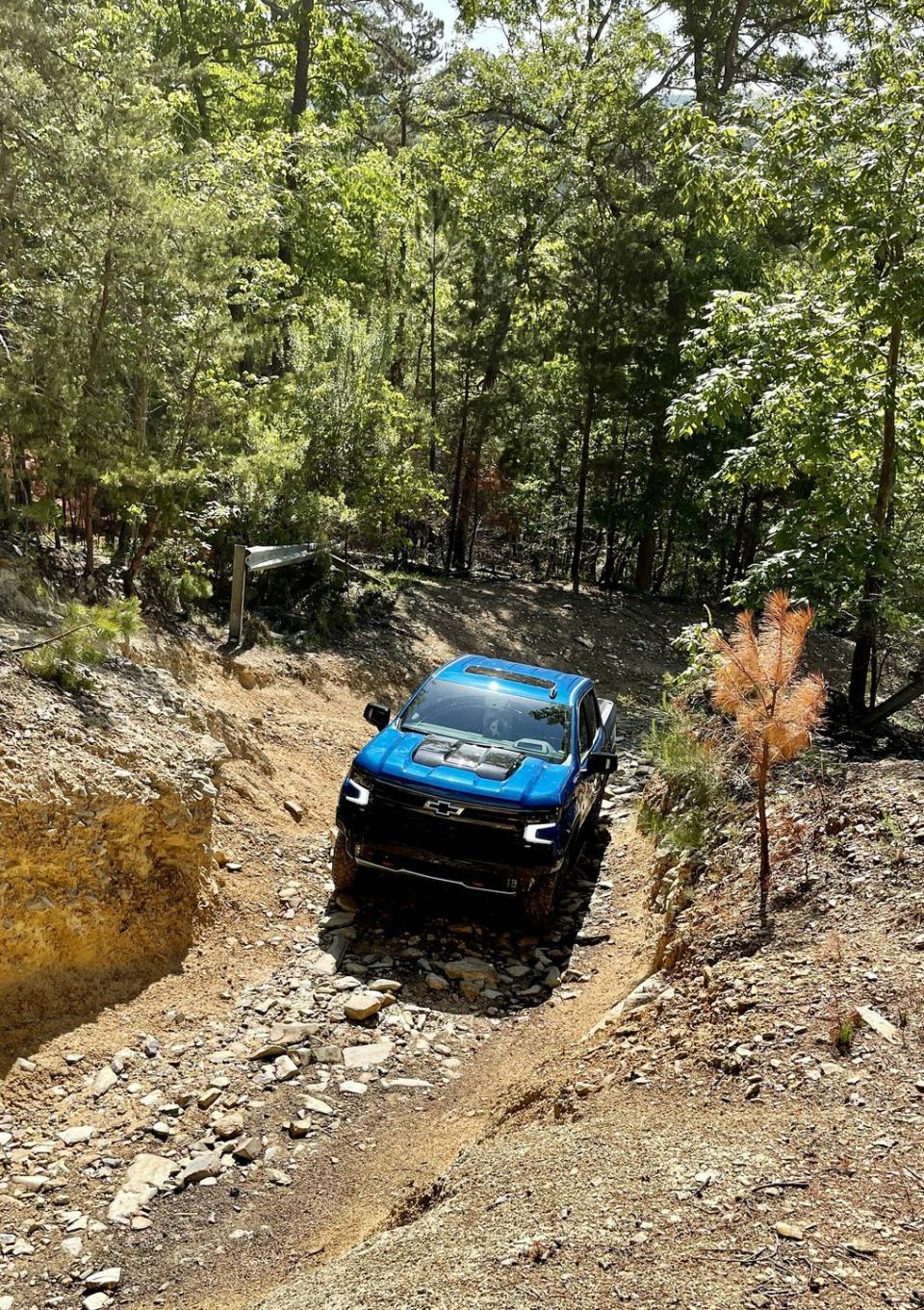
Once you're past The Ledge you can probably run the rest of the way to the top without too much drama (unless you deliberately pick insane lines), but I didn't have time to run the whole trail, so I turned around. Which, again, made me thankful for the ZR2's relatively tidy dimensions, because turning around on Daniel isn't always feasible.
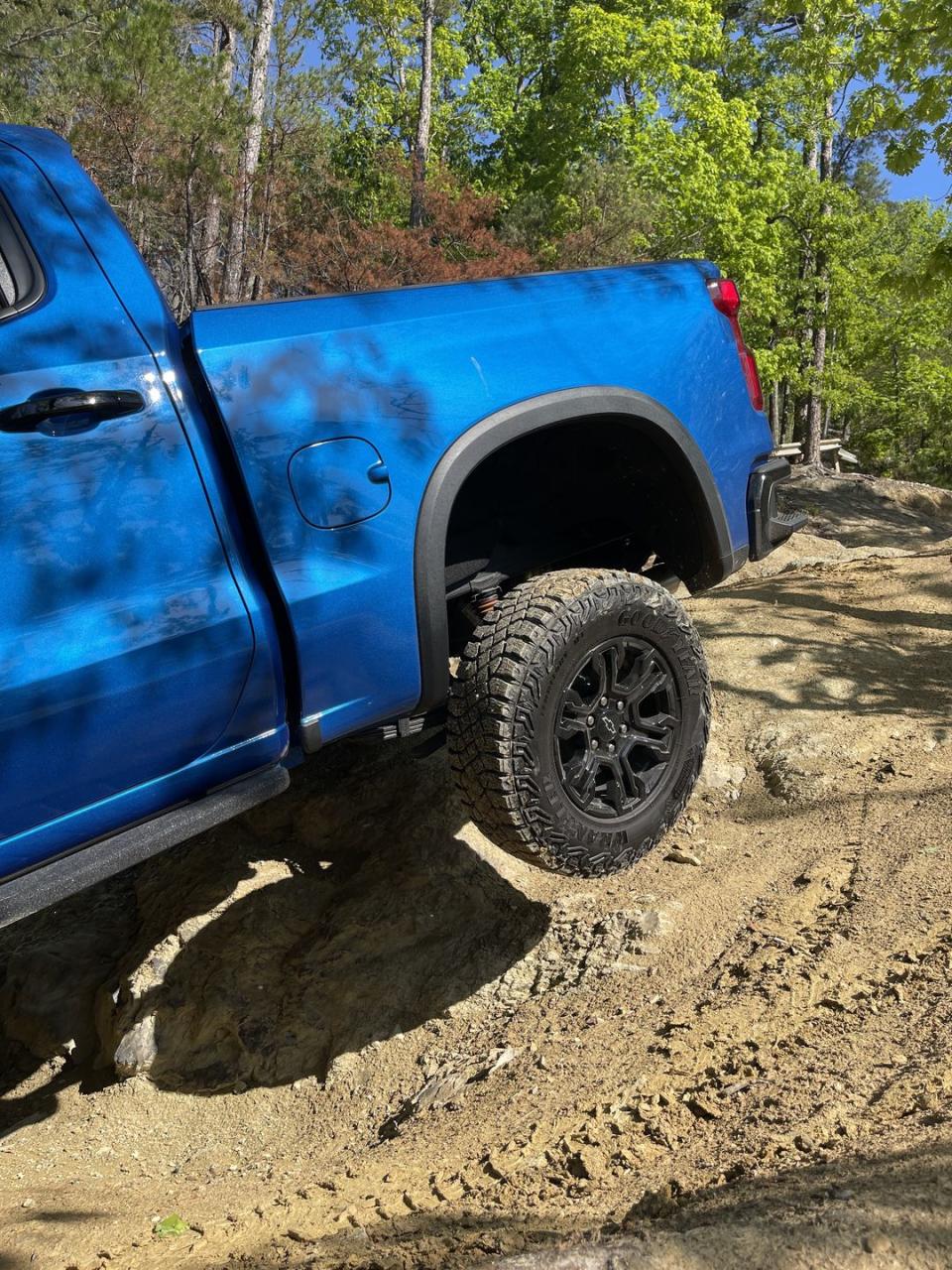
On the way back down over The Ledge, I stopped to reassess my line and decided to back up and take a shallower line off the rocks, to mind the rear departure angle. Diffs locked, transfer case in low-range 4WD, I again overlapped brake and throttle to ensure the truck didn't creep forward and drag the bumper. Just when I expect the ZR2 to begin slowly rewinding the last 10 feet or so of the descent, the rear end crabs sharply to the left as the rear tires spin fruitlessly. The fronts don't seem to be doing anything, as if it's not in four-wheel drive. That suspicion was confirmed when I looked down at the instrument cluster and see "4WD Off" staring back at me. The truck took itself out of four-wheel drive, straight from low range. No stopping at neutral, no input on my part.
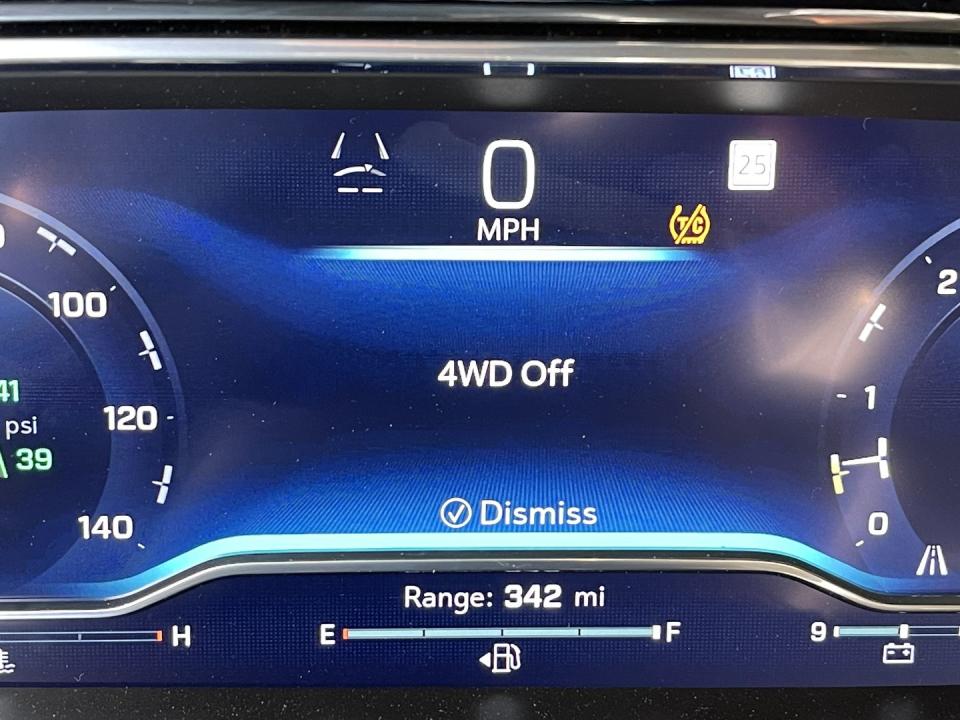
Which presented a problem, because that rear-end skid put the driver's door right next to a tree root, with no way to move the truck without scratching it. And so, after coaxing the truck back into 4WD, I ambled down from the obstacle and drove home without further incident. But I wanted to know what the heck happened out there.
Thus began a long back-and-forth with GM in which Chevy shipped the truck back to its Milford proving grounds to figure out what happened. Which, as it transpires, means "figuring out what I did." Because GM would know why "4WD Off" happens, right? It put it there. But the engineers wanted to know how I inadvertently discovered it. Of course, the truck logged the whole incident on its black box. When I eventually got on a Zoom call with a couple of engineers, I told them how I was overlapping the brake and throttle when the truck quit out of four-wheel drive. "Yeah, that's what we saw," one of them said. "You were at more than 50 percent throttle with your foot on the brake, so that's why it did that." OK, covert data-logging aside, why is that a problem?
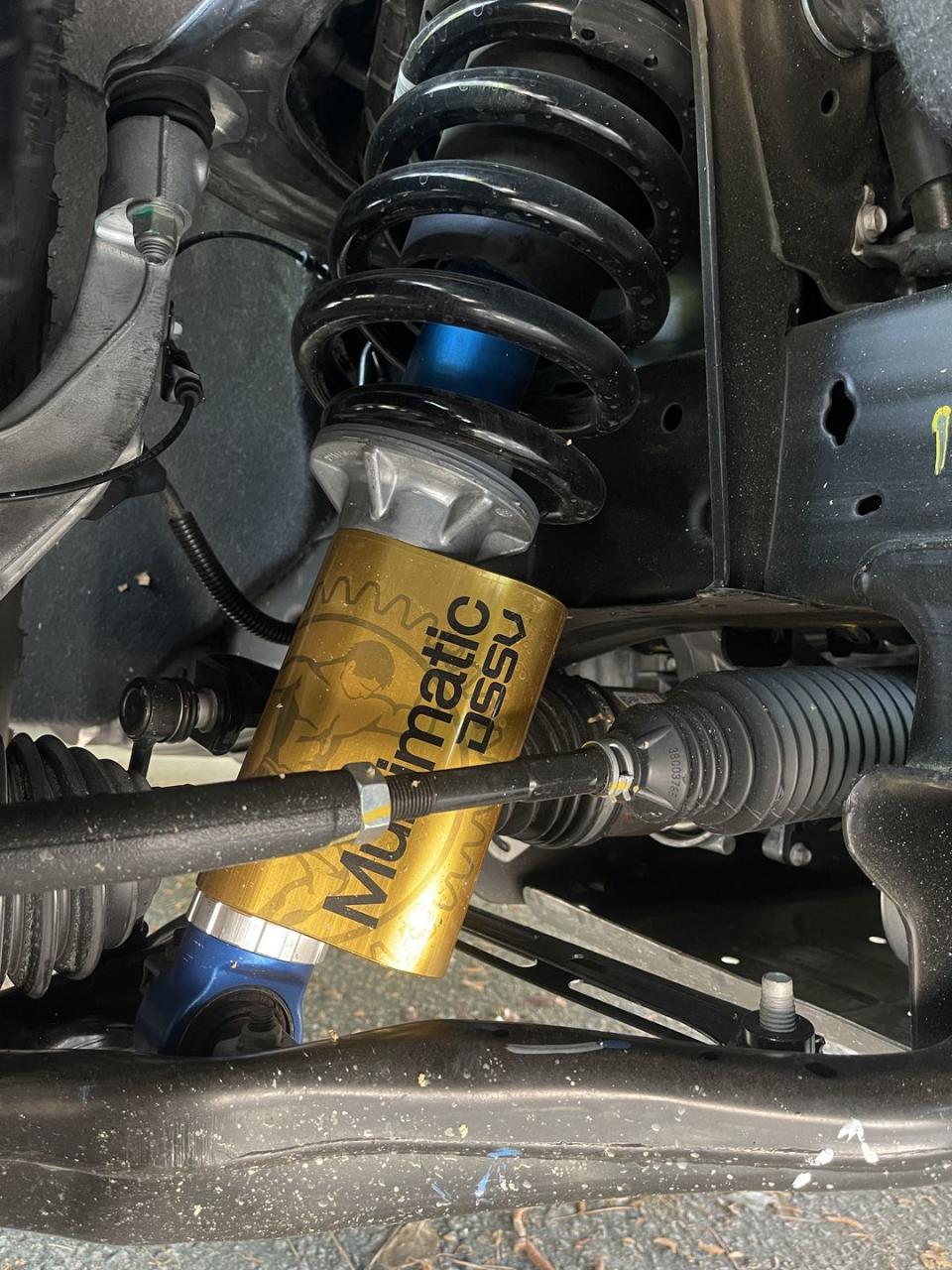
Well, as it turns out, GM trucks with full-time transfer cases are never really locked, front to rear, because they use a clutch for fore-aft power distribution. So when you're in high-range four-wheel drive, or low range, the front and rear axles aren't really physically locked together. They have that clutch in there, doing its best, but with too much load it can tap out. Read the forums, and it usually sounds like 4WD Off shows up when trucks are working hard—in the middle of a mud bog, plowing snow, or on The Ledge in Uwharrie. In other words, the least ideal times. Which maybe owners could avoid if they knew the limits of the system and the hardware inside. In trucks with a part-time transfer case, the front and rear axles are physically locked, so maybe if you plan to plow snow, get one of those.
It's a tradeoff, I suppose. Full-time four-wheel drive (all-wheel drive) is mighty nice in a pickup, especially when you're driving in the rain with nothing in the bed. It's a boon on the street. If it's a liability in narrowly defined off-road situations, that's a compromise that probably makes sense. But if you've got something like a ZR2, or a GMC Sierra AT4, just mind the transfer case during your off-road adventures. To that point, those GM engineers had a final tip-slash-admonishment: Terrain mode automatically holds the brake until you pick up the slack with the throttle. I like to use my own two feet to control the speed of a truck off-road, but in that particular situation out there on the trail, next time I'd let the truck have its own say.
You Might Also Like

 Yahoo Autos
Yahoo Autos 